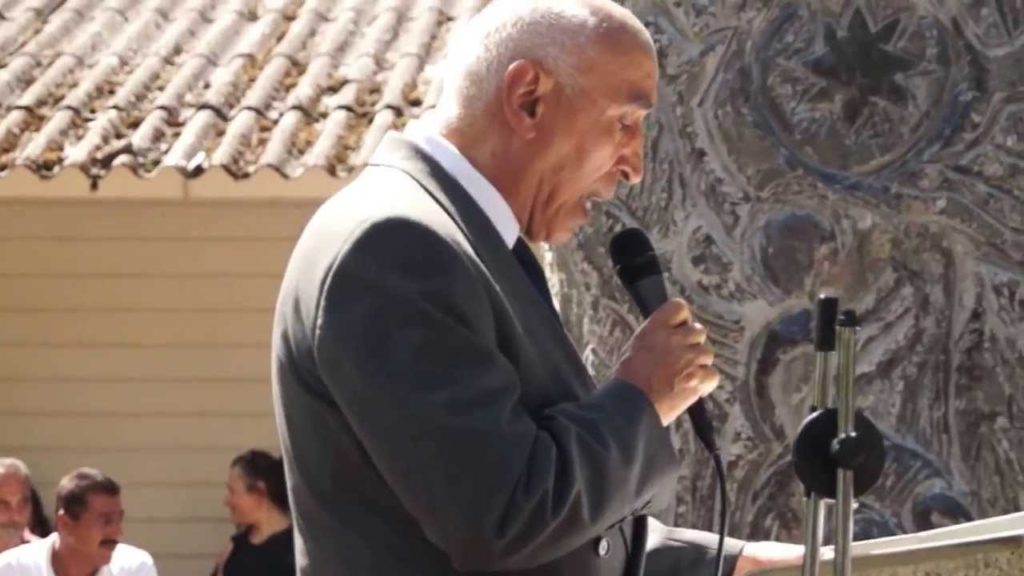th anniversary in Frankfurt and they had good reason to celebrate.
The festivities took place in a community center where some members had held birthday parties or wedding receptions. There were Turks, Armenians, Greeks, Arameans, Kurds and Germans, young and old, there was music, sung in all the languages, and dancing, and a buffet with everything from mezze to baklava. Ali Ertem, the founder and chairman of the SKD, told the members and guests that he had decided to throw away his prepared remarks and to speak from the heart. To summarize the experience of his association, he began with the question of why the organization was founded. Many years ago at Bochum university he met the Armenian Mihran Dabag, then also a student, who first told him about the crimes committed by the Young Turk regime against the Armenians. Like many Turks who first learn about the genocide when they come to Germany, he decided to look into it, and his research quickly proved the case. Moved by the moral responsibility to act on this new knowledge, he set up the association with the commitment to get Turkey to recognize the genocide, and the first petitions began to circulate.
Ertem and his associates soon thereafter organized a visit to Armenia, which was to become an annual event every April 24. On his first visit, he was asked by his hosts why he set up the SKD, considering the policy of denial that reigned in Turkey. He answered with an anecdote about an old Shi’ite wise man. The man lived as a farmer with his family, at the foot of a mountain, and his sons had been urging him to move to a region with more sunlight, for the crops. The man refused, and instead he began to dig at the base of the mountain every day. In response to queries, he explained that by digging, he was preparing to move the mountain; if he did not complete the task in his lifetime, his sons would continue it, and after them, their sons. And so on, until the mountain had been relocated. “We have broken the monopoly on the genocide,” Ertem said. “The situation inside Turkey is tough, to be sure,” he said, “but we are moving mountains.”
Dogan Akhanlı was the guest speaker. The German-Turkish author has been jailed and persecuted repeatedly by Turkish authorities, most recently a year ago when he was arrested in Spain on Turkish orders and released only after an international mobilization. As a result of this harassment, his fame as an author has been enhanced and his books are selling well.
His address filled out the story of the SKD and its significance, He recalled that in a speech he was invited to deliver on April 24, 2011 at the Paulskirche in Frankfurt, at the annual genocide commemoration event, he had characterized the SKD as the pioneer in the process of coming to terms with the genocide against the Armenians and Aramaeans. Akhanlı said that “denial of the genocide and expulsion of the Armenians and Aramaeans and Pontus Greeks was not only a social phenomenon inside Turkey.” Outside the country, intellectuals with a Turkish background, even those committed to working through past history, shied away from using the term genocide — until Hrant Dink’s murder in 2007. He cited the usual argument, that one couldn’t use the term genocide for events occurring prior to its having been coined as a juridical term, and reviewed the work done by Raphael Lemkin, which led to the UN Genocide Convention. Since then, he said, there is no question among researchers that this was genocide. So, it is wrong to talk about some “Armenian question.”

Pubblicazione gratuita di libera circolazione. Gli Autori non sono soggetti a compensi per le loro opere. Se per errore qualche testo o immagine fosse pubblicato in via inappropriata chiediamo agli Autori di segnalarci il fatto e provvederemo alla sua cancellazione dal sito





